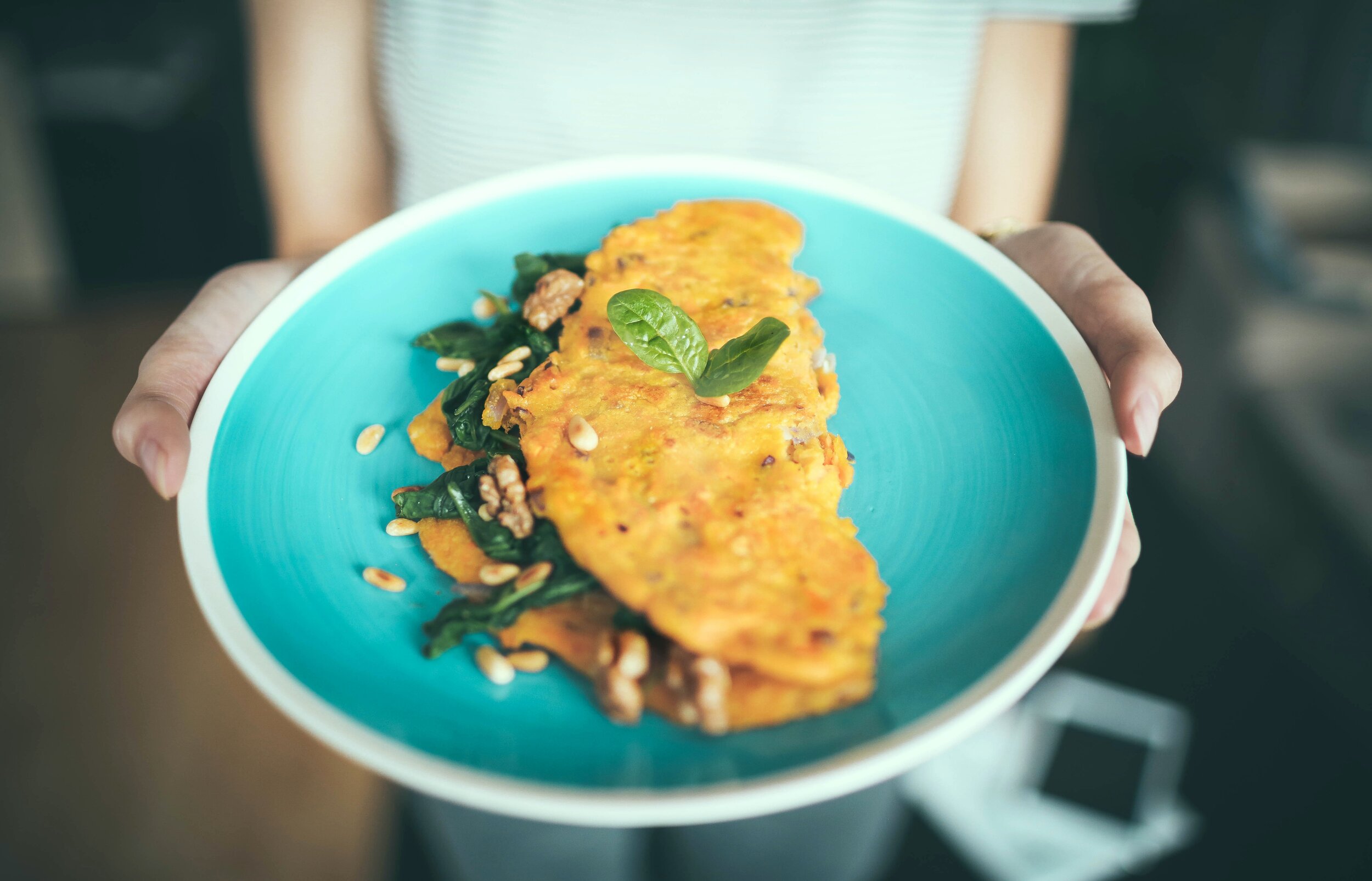Nutrition for the Fourth Trimester
In the months just after birth, also known as the fourth trimester, it is important for mums to keep on top of their nutrition and replenish their truly amazing bodies, even though their priorities will definitely have shifted!
Read on for my top tips for postpartum nutrition.
Have you heard of the “fourth trimester” before? This is the name given to the first 12 weeks after birth. The fourth trimester is a period of huge adjustment for mum and bub (and probably dad, too!) as everyone gets settled into a new family rhythm.
Even though it’s hardly the first priority during this time, a mother’s nutrition during the fourth trimester is definitely still important.
Your body has just gone through the most incredible process that it can experience - growing another human being and delivering that human into the world. This places big demands on your nutrient stores. And now with that part over, you’re responsible for caring for an entirely dependent new person!
Here are my top tips for nutrition for the fourth trimester.
Make sure you’re getting enough protein
Regardless of the type of birth you had (vaginal or c-section), protein is a very important macronutrient. Protein helps to repair and rebuild the muscles and tissues that have been affected by pregnancy and birth.
How much protein do you need? To support energy levels and tissue recovery, aim to consume around 1-1.2g of protein per kg of body weight. If you are also breastfeeding (and/or if you take up regular exercise again), aim to stay at the higher end of this range.
What does that look like? Well, if you weigh 65kg, 1.2g per kg means 78g of protein. This could be achieved in having the following foods across the day:
1 glass dairy milk (8g) - breakfast
½ cup rolled oats (6g) - breakfast
2 eggs (12g) - lunch
100 grams chicken breast (38g) - dinner
1 x 160g snack tub of higher protein Greek yoghurt (15g) - dessert or snack
Replenish your micronutrients
Some of the key micronutrients to focus on in the fourth trimester include iron and calcium.
IRON
Pregnancy greatly increases iron needs in order to support the mother’s increased blood volume during pregnancy plus the needs of the growing baby. Iron deficiency is quite a common issue during pregnancy and can make you feel extremely exhausted as well as increasing health risks for the foetus (Breymann, 2015).
Many women begin pregnancy with low iron stores, which makes it hard to catch up. If you experience significant blood loss during birth, your need for iron replenishment after birth is even higher!
Although your iron requirements return to normal after birth, a short term focus on restocking your iron stores can help postpartum. High iron foods include red meat, poultry, eggs, tofu and legumes like lentils and chickpeas. Animal-based iron is more easily absorbed by the body.
CALCIUM
Calcium is also an important consideration and one that is sometimes overlooked, but with more and more people going dairy free or trying out vegan diets it really needs some attention.
During pregnancy some of the mother’s calcium intake is used to build the baby's skeleton. If you don’t eat enough calcium then some of it needs to be taken from the mother’s calcium storage system, i.e. her bones!
Although the recommended calcium intake doesn’t change between non-pregnant and pregnant women (it stays at 1000mg), this is because your body actually becomes better at absorbing calcium from foods during pregnancy to meet your needs. (How cool is that!)
Making it to 1000mg of calcium each day actually requires some thought, especially if you are dairy free. Check out my blog article here on how to get enough calcium.
Vitamin D is also important for bone health and in fact, it also helps your body to absorb calcium! So while you are at it, try to get outside each day during daylight hours. The best source of vitamin D is sunlight. Getting some time outdoors can also be mood-boosting and help perk you up after a sleepless night!
Stock up on healthy convenient snacks
It’s not always easy to make or sit down to a full meal when you have a newborn, and sometimes it just doesn’t suit your routine of night time wakes, naps and being a bit all over the place.
Keep some healthy and convenient snack foods on hand in the pantry/fridge so you can grab something small to refuel without too much stress. This is especially important if you are breastfeeding because you will have increased energy needs and you’ll also probably be stuck sitting down and feeding fairly often.
Some ideas for convenient healthy foods are:
fresh fruit
unsalted nuts
nut-based muesli bars (look for bars made with mostly nuts, seeds, oats etc. and lower in sugar, around 5-6g sugar per bar is quite low for a muesli bar)
air-popped popcorn
Greek yoghurt
hummus, cottage cheese or cheddar cheese with wholegrain crackers or brown rice cakes
grainy bread with natural peanut butter
cherry tomatoes or veggie sticks with hummus or tzatziki
boiled eggs
protein balls / bliss balls
crispy roasted chickpeas or fava beans (can be found in supermarkets in snack packs)
Keep up your prenatal vitamin
There are of course a lot of other micronutrients that play a role in supporting recovery and energy levels postpartum besides iron and calcium. Many of these are likely to be in your prenatal multivitamin, so it’s a good idea to keep on taking this during the postpartum period.
Exactly how long is ideal to keep on taking your prenatal depends on a lot of factors including your individual health status and whether you’re breastfeeding. Keeping it up at least for the “fourth trimester” (three months post birth) will help to keep your nutrition optimised during this intense period.
Don’t forget to drink water!
As someone who breastfed twins, let me tell you I have never ever drunk so much water in my life as I did during those first months postpartum.
Now, regardless of whether you are breastfeeding, hydration is absolutely key. It will help keep you feeling more awake and energised, and it will also help keep your bowels moving (which can sometimes be a bit “stuck” immediately after birth).
For breastfeeding mums, get yourself the biggest and most easy-to-use water bottle that you can drag around with you and keep it topped up.
Want to know more about postnatal nutrition?
These are just a few of my top tips for nutrition for the fourth trimester. If you want to know more about how to support your nutrition in the postnatal period, it’s time to grab a copy of my Postnatal Nutrition Handbook. This ebook contains all the key information you need to know, from the key nutrients, tips for building balanced meals and meal prepping, breastfeeding nutrition and more. Plus you get 10 delicious recipes!
Grab your copy of the Postnatal Nutrition Handbook here. Everyone who purchases the book can also join a private Facebook group where you can ask nutrition questions and receive further free postnatal support. Yep that’s right, I will jump into the group regularly and help you out!
Would you prefer one-on-one help with your postnatal nutrition? I work with clients worldwide via video consultation to optimise their diet to suit their unique individual circumstances. Book your FREE 15 minute discovery call with me here.







